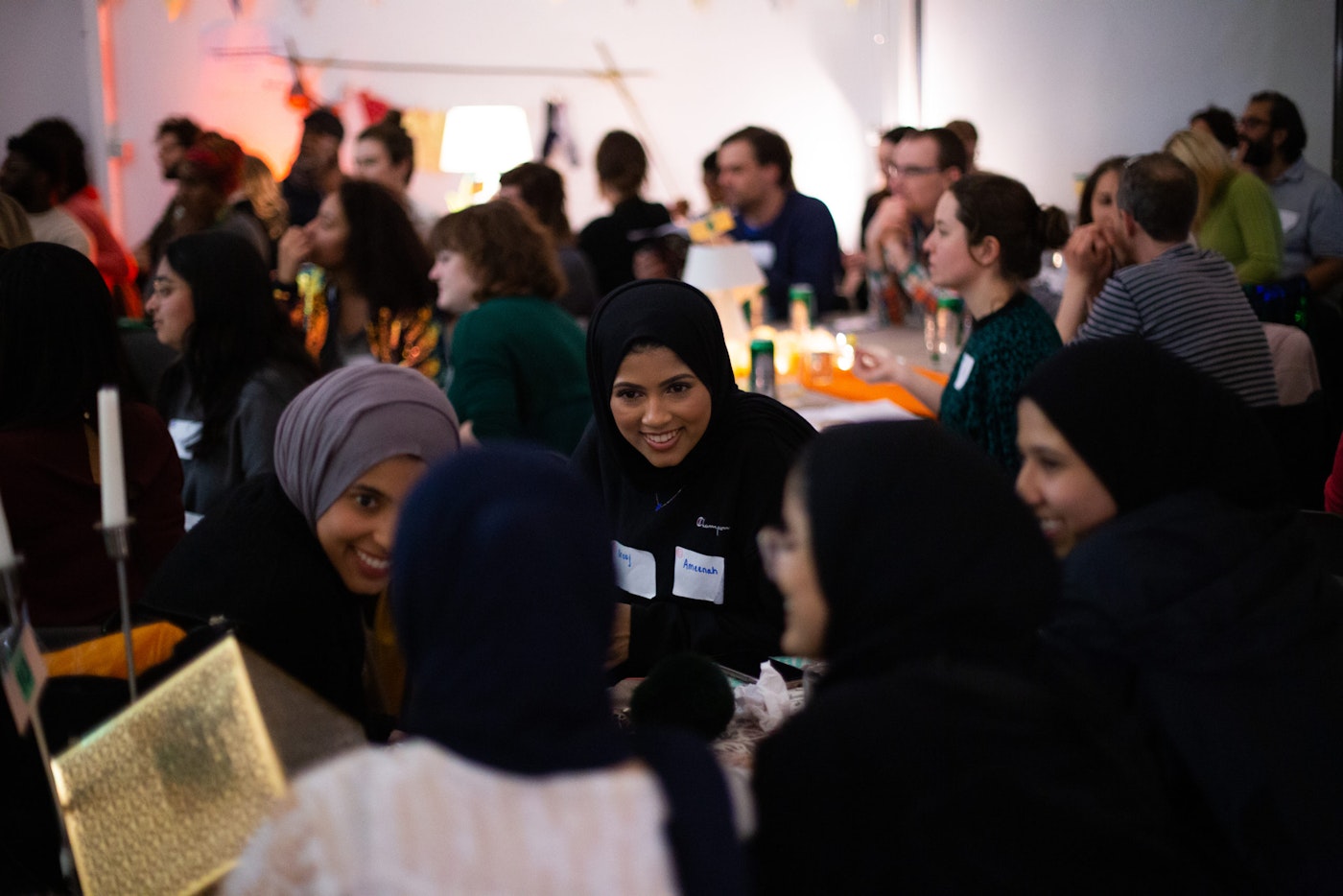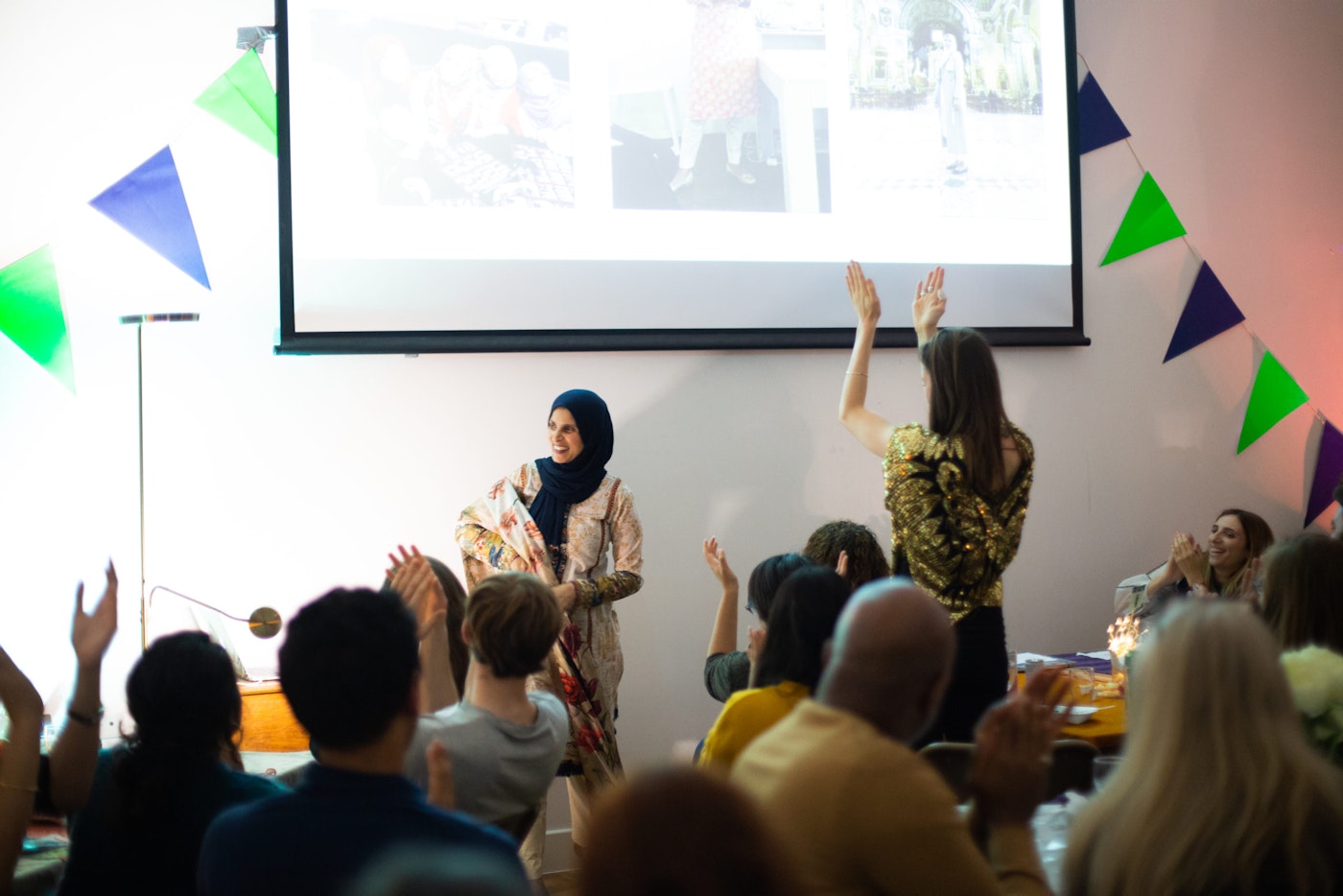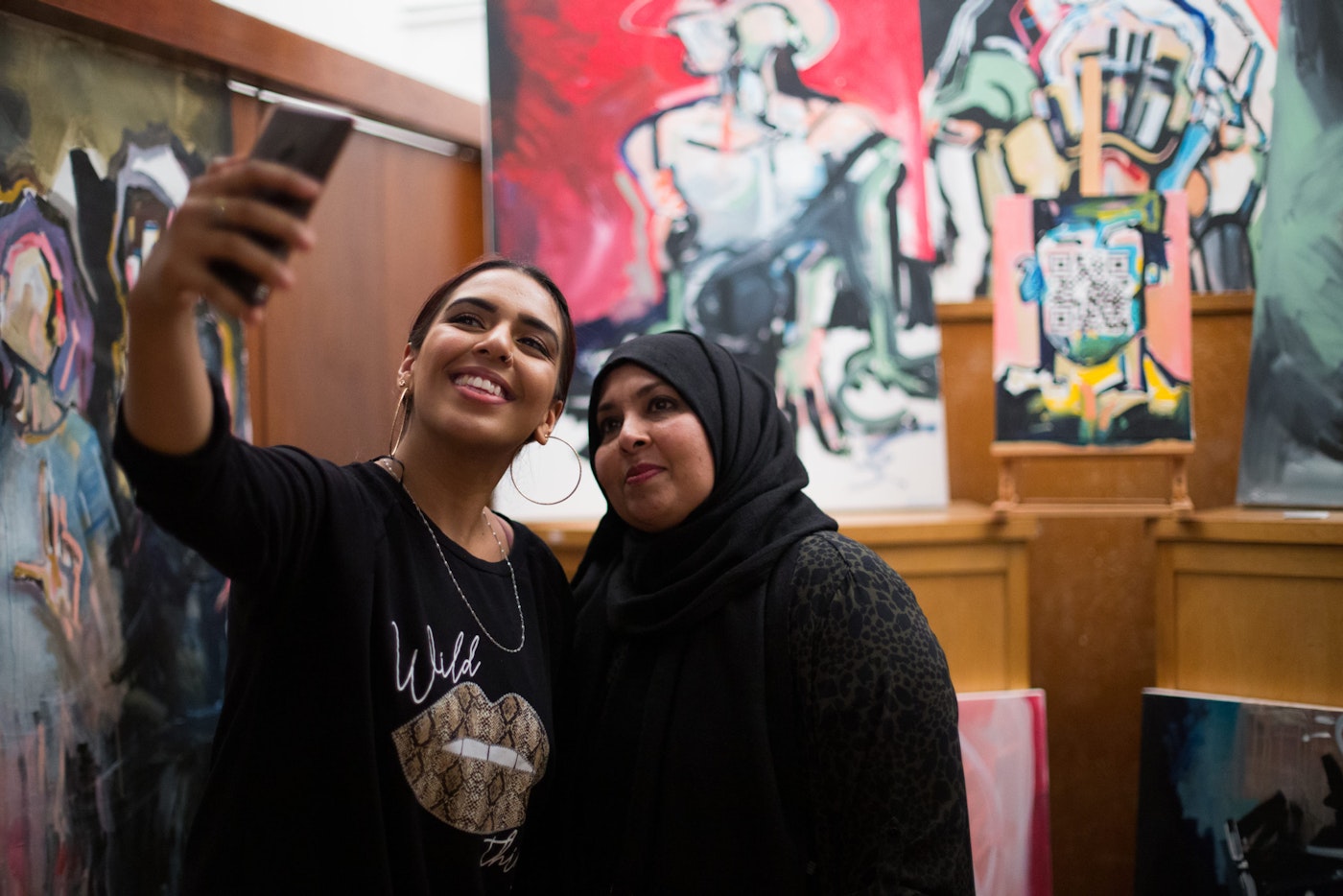The Importance of Continuing to Learn as an Adult
by Huddlecraft in Culture & Lifestyle on 10th March, 2023
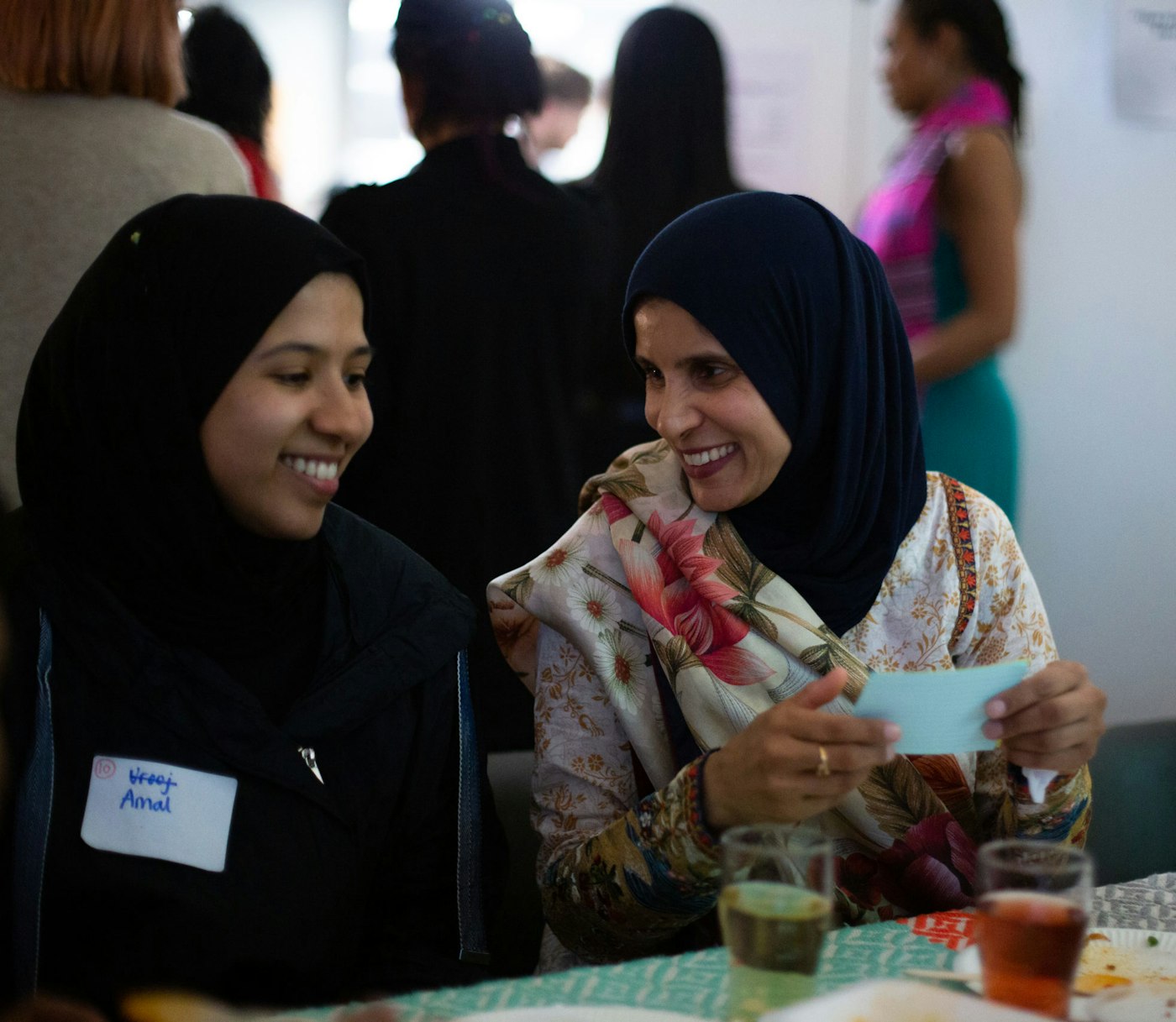
Learning is a lifelong journey that allows us to gain new perspectives, skills, and knowledge that can enrich our lives in many ways. As adults, we often find ourselves juggling multiple responsibilities, such as work, family, and other commitments. It’s no surprise that learning can sometimes take a backseat in the midst of our busy lives. However, it’s important to recognise that continuing to learn can bring tremendous benefits to our personal and professional lives. Finding time to learn doesn’t necessarily mean taking on a new degree or certification program. It can be as simple as reading a book, attending a workshop, or signing up for a course.
Huddlecraft’s Partnerships Director, Anneka Deva, sat down with Zineb Mouhyi, co-founder of Youth x Youth, about how prioritising her learning journey as an adult and taking part in Huddles helped bring her creative projects to life and allowed for compassionate accountability.
This article was written in partnership with Huddlecraft, an ecosystem of support for peer-led learning and action. They believe in creating a world of co-learners, and they do this through hosting Huddles (purposeful peer groups), training people in Huddlecraft through their Host Fellowship and Huddlecraft101, and applying their learning design skills on Studio projects. Huddles are small groups of people, pooling their resources to unlock potential they couldn’t unlock by themselves.
Hosted by a brilliant guide, each Huddle creates a space that is ripe for learning, creating and taking action. And when you learn, create or take action with others, you grow yourself, your connections and what you’re capable of. Huddles come in many shapes and sizes, to suit their theme or purpose.
Joining a Huddle gives you the chance to grow to meet a challenge that really matters to you, whether it’s something personal, professional, societal or even existential. There are bursaries available through The Abundancy Fund for these Huddles through Amaliah, just say you are applying through the ‘Amaliah Bursary for Women of Colour.’
Tell us about yourself
My name is Zineb and I’m the co-founder of Youth x Youth. I’m from Morocco, but I’m currently based in Berkeley, California.
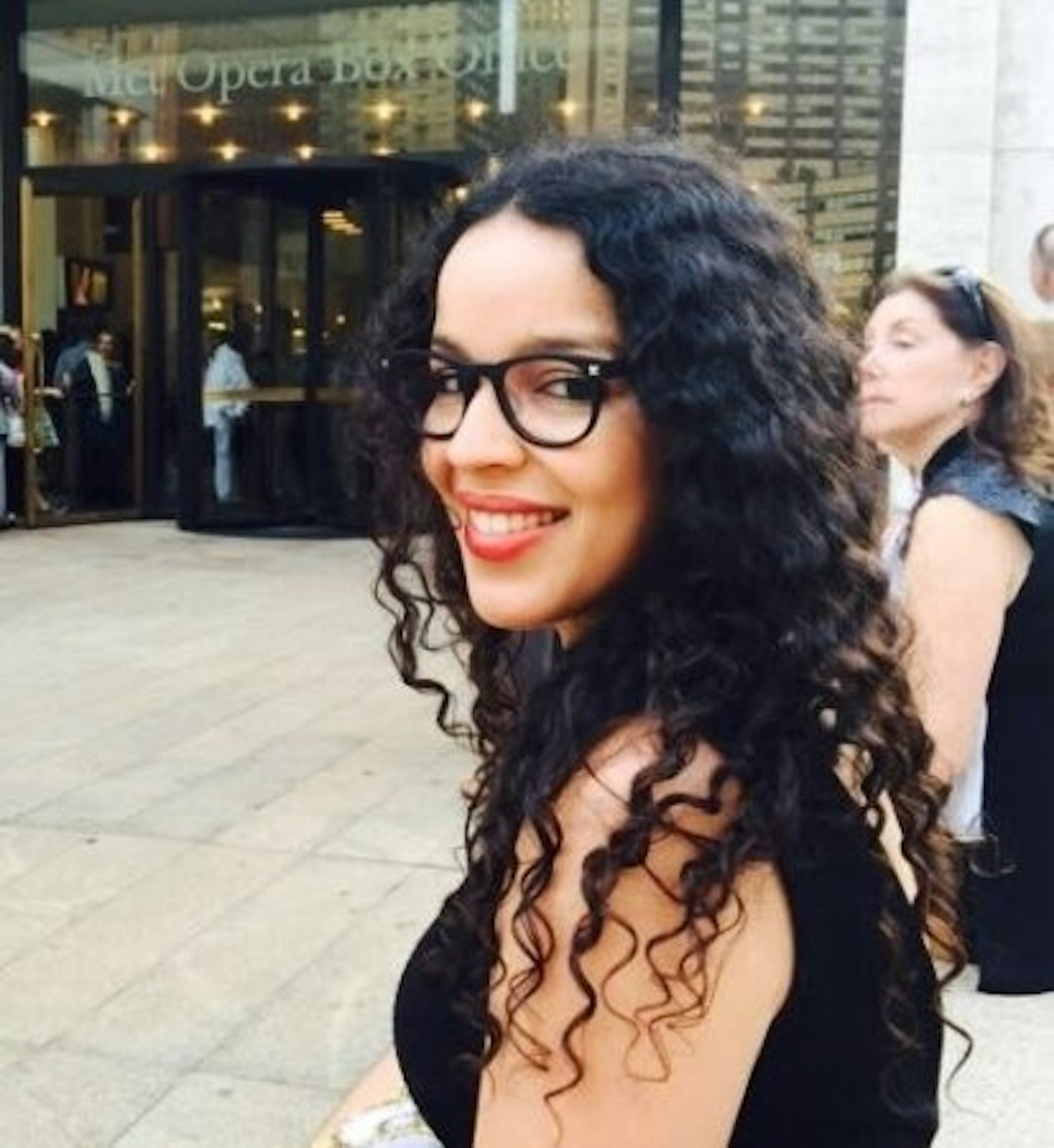
What do you spend your time doing?
That’s a complex question! I’m involved in many different things at the same time, and that’s also how I love engaging and learning in the world.
At the moment, I’m a co-founder of Youth x Youth, an organisation founded three years ago, centred on working with youth education activists.
I’m also the founder of The Weaving Lab, a community of practice for weavers of social change.
And I’m pursuing a PhD in anthropology and social change, because I really care about marrying the theory and practice of social change. So the PhD is the theory, and the work I do in the world is how I practise and try to see if change can happen.
How did you first hear about Huddlecraft (which back then was called Enrol Yourself)?
A friend who participated in a Huddle the year before, spoke to me about the community. At first, I said, “This sounds amazing, but everything is in person.” But COVID happened and a lot of the programmes became online, so I saw an opportunity to apply. And I did!
What was the first Huddle you took part in?
One with Alana Bloom which focused on the question: ‘Who do we need to become?’
I found it an extraordinary experience of peer learning, entangling this notion of how we need to change and how we bring ourselves into the world.
I loved the Huddle experience so much that the moment we finished, two weeks later, I applied to another one! This was with Imani Clough on Liberated Learning, which is what I’d started working on in my first Huddle. So that worked really nicely because with the second Huddle I was able to take my project idea and continue developing it with others in a more specific way around learning and education.
What made you sign up for the Huddle?
It was clear to me a while back that I love learning and continuing my learning, but it’s really hard to hold myself accountable to certain things. I realised being a part of a group, especially one with a core interest or inquiry in common would enable me to go deeper. And it was absolutely true.
For a self-directed learner that wants to go deeper and have a community to learn with, it’s an absolutely fantastic programme. I found exactly what I was looking for in it, as well as things I wasn’t looking for, and didn’t know I would find.
Can you describe the Huddle vibe? What’s it like attending one?
In the Education for Liberation Huddle, we ended up being a group of only women, all involved in education in different forms, whether as parents that wanted to reflect more on how to educate their kids, or executives running organisations.
There was a deep sense of solidarity for what we saw in common very early, and with the theme being liberated learning, we wanted to bring in our different perspective on the ways learning felt constrained depending on the circumstances we were in. We also felt a lot of camaraderie and a sense that we were in a collective mission on the same journey, allowing for openness and vulnerability.
We were 12 people from different backgrounds, including one Muslim parent focused on learning with her kids in a way which incorporated spirituality and learning mindsets, a couple of facilitators who were thinking about their approach in creating liberated learning spaces with their organisations and freelance work, as well as learning designers or people working with organisations to develop curriculums.
This diversity of perspective enriched our understanding of liberated learning, to the point where, by the end, we created principles around ‘Liberated Learning’ – a piece of work that I’m very proud of.
We also wanted to continue and hope to write a book together. It’s an exciting prospect, though as always life gets in the way, and finding time and space for it becomes difficult when you’re not part of the Huddle where you have that common accountability. So… to be continued!
There are bursaries available through The Abundancy Fund for these Huddles through Amaliah, just say you are applying through the ‘Amaliah Bursary for Women of Colour.’
How were you able to make time for the Huddle, especially as you’re involved in so many incredible things and also have other commitments?
The clarity on the commitments from the beginning helps in that you simply have to put the times in your calendar and show up! Showing up, for me, is 90% of the work.
For my own project, it was a way to enhance the things that I want to do in life but I don’t necessarily have a community to hold me to account.
While it took time to show up, it also created the structure for the other commitments I had. My work was centred in a way that I felt accompanied, even for my own practices and rituals, and having a community that checked in on me was grounding. It was so nourishing that setting time aside for the experience wasn’t overwhelming in any way.
What was the application process to get onto the Huddle? What advice would you give to someone applying?
I would say remember that the application is to make sure that everyone in the Huddle is truly committed and knows what they want to get out of it and who they want to show up as during that experience.
Focus on why you want to be a part of the Huddle and make your intention very clear. That’s all the application is about. As far as I’m concerned, it helps to determine if you have the clear passion and desire to show up, such that everyone selected can have that clear sense of kinship and alliances on what they decide to collectively inquire about.
On a Huddle, everyone has a ‘Learning Question’ – an enquiry question they follow over the course of the journey. What was yours?
My learning question was along the lines of “How do we support young people to liberate education systems or to decolonise education systems?”
As I mentioned, during my first Huddle, I had already started co-creating my NGO, Youth x Youth – a community of young people, youth education activists and adult allies, who are advocating for education transformation. It’s based on the idea that education is currently not serving young people, but serving the economy to create workers. So we’re working towards a vision where education is transformed to serve people, their communities and the planet.
The learning question enabled me to hone in on an area of my NGO I was focused on building – allowing room to dig deeper and determine what young people need in order for them to be able to liberate their own education system.
I’m still very much involved in going deeper in this question, my PhD is currently focused on understanding the processes of how education has been colonised and what our process is to liberate or decolonise education.
I feel the momentum I needed to tackle this came from participating in the Huddles, and I’m so very grateful to have been part of that experience because it kept building on from that point on.
So taking part in Huddles helped you start your NGO Youth x Youth?
Absolutely. I had the idea already and had done a kind of prototype, but I started really constructing it with the first Huddle. Having a concrete prototype, which was the launching of Youth x Youth with a learning festival (which is now annual!) made room for the expansion.
By the second huddle, the NGO had been launched, and so I focused on continuing that construction. Having people who are part of education systems and learning experts give me more concrete advice along the way helped shape the organisation to become what I initially had in mind.
What impact did taking part in the huddles have on you as a human?
There are a few things. The first one is not feeling alone, realising there are communities out there, as well as people who simply need the structure the Huddles provide to continue evolving in their lives. It made evident how the coming together of small groups and then larger groups bring about transformation.
We duplicated the model of peer learning for Youth x Youth, creating six Global Action Circles. It’s a key way that we take young people from ideas to action. It created a culture of true responsiveness and presence making room for alternative ways of learning.
Why is it important for Muslim women to take part in things like this and to be present in these spaces?
The main thing is that being a part of these intercultural spaces allows us to share forms of our identity and wisdoms that are part of our heritage.
I would say it’s important for anyone from any religion to take part in these spaces, and not segregate in order to foster a culture of learning from one another, developing real friendships and creating modes of understanding one another. and find those spaces where we can actually really learn from one another.
And then generally, for anyone who is a learner and would love a community to learn with, this is an amazing opportunity.
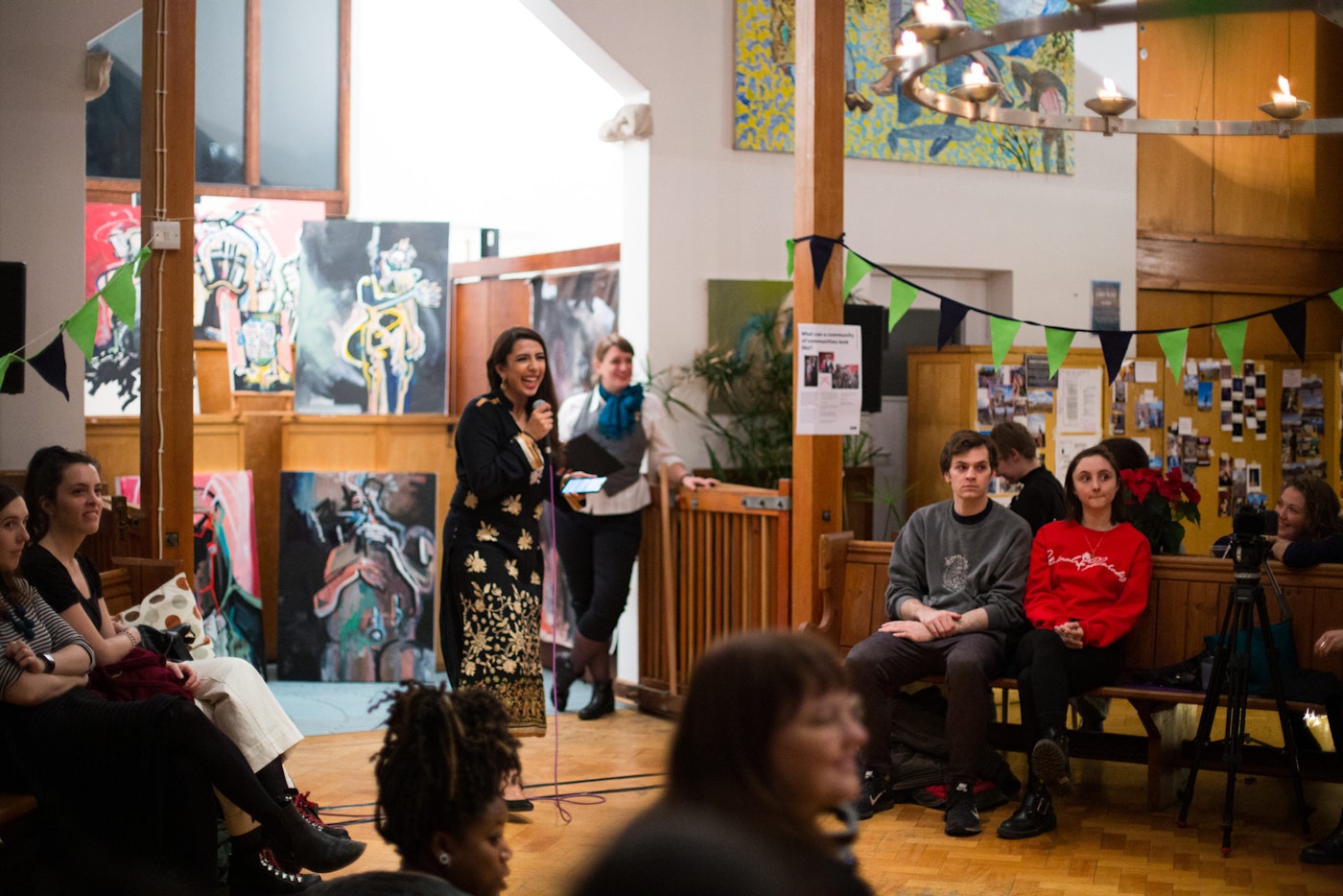
Could you share a highlight from your Huddles?
A few things come to mind, but my showcases are my biggest highlight. The celebration at the end of the journey where you create something together to demonstrate what you’ve learned was fulfilling.
For the first showcase, we took people on a ‘time travelling journey to 2030’, and it was a really fun experience to connect people to a view of the future in a way that’s playful! Collaborating with my peers to create something that helps people understand what a profound journey this has been was very special.
The post-showcase reflections and goodbyes were also quite emotional, knowing that we’ve made real friendships and real bonds for life, even if we’re far away from one another, was a definite highlight!
If this interview inspired you to take part in a Huddle, there are bursaries available to take part in a Huddle through Amaliah, just say you are applying through the ‘Amaliah Bursary for Women of Colour.’ Here is some information on upcoming Huddles that you can sign up to today:
Transform your financial wellbeing through sisterhood
Our Financial Ease Legacy is a compassionate inquiry for Black women, exploring ways to create lasting financial ease in our lives and communities. Hosted by Lola Odunsi, a trained ‘trauma of money’ facilitator, this journey centres peer learning, supporting you to cultivate financial wellbeing aligned with your values, in a supportive sisterhood. Find out more.
Application deadline: September 2023
Join a community of parents and become the kind of parent you want to be
Are you a parent who would jump at the chance to join a supportive peer group to connect, reflect and explore parenting? If so Mamma Kind Huddle, with Max Fyfe, might be for you. This online evening learning journey over 6 months is designed to fit into your parenting timetable, and will give you the space to intentionally share with other parents how to create deeper relationships with your children and help your family life flourish. Find out more.
Application deadline: September 2023
Face your fears
Is there something you’ve dreamed of doing for a long time, but haven’t, because fear has been holding you back? Have you harboured secret dreams of starting your own business, becoming an artist, or going against the grain? Join this journey hosted by Rosamund Mosse to explore who you are, and who you might become, through joining a supportive group of peers who are all seeking a community. Find out more.
Early-bird application deadline: 23/4/23
Reimagining Hope
In times when turning on a screen is opening a door to bad news, this journey is a chance for a change of perspective. Hosted by Letícia Usanovich this global online peer-group will be a collective exploration of creative alternatives: learn and spread practices of hopefulness across cultures, create a collection of hopeful stories from around the globe, develop a project to co-create a better present and future, or come up with something new and unexpected! Connect with hopeful people from around the world, draw inspiration from different contexts and turn this into concrete actions to cross-pollinate hope on a local and global scale. Find out more.
What’s the Abundancy Fund? We set up the Abundancy Fund to provide bursary places for Huddle participants, as part of our ongoing commitment to inclusion. We partner with organisations who are committed to supporting diverse communities to access opportunities for learning and growth.
How does it work? Your organisation supports us to share the Huddles with your networks, and then applicants to Huddles can then indicate whether they meet bursary criteria (e.g. The Amaliah Bursary for Muslim Women), and the Abundancy Fund can enable them to take part in a Huddle. It is then up to the host of that Huddle to decide how to manage the bursaries. So a host could offer an Amaliah sister a full bursary, a part bursary, or choose to give the bursary to someone else, depending on the pool of applicants and the needs of the group.
Early-bird application deadline: 4/7/23
Huddlecraft
Huddlecraft is an ecosystem of support for peer-led learning and action. We believe in creating a world of co-learners, and we do this through hosting Huddles (purposeful peer groups), training people in Huddlecraft through our Host Fellowship and Huddlecraft101, and applying our learning design skills on Studio projects.
